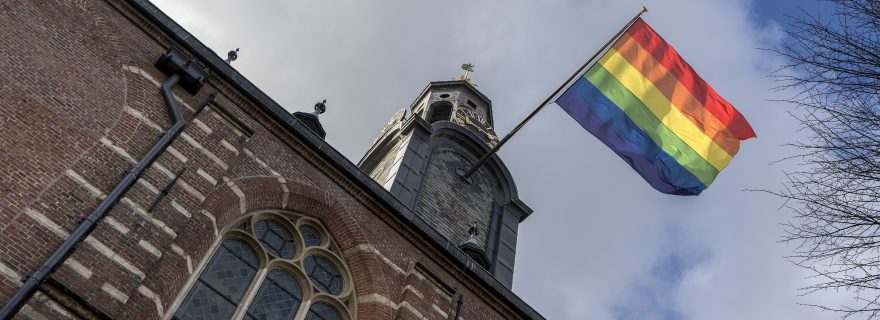LGBTQ Pride, Black Lives Matter, and Leiden University
Pride looks different this year, at Leiden University and worldwide. While the coronavirus has forced most events to be cancelled or moved online, the Black Lives Matter demonstrations have renewed conversations about the intersections between movements for LGBTQ liberation and racial justice.
The 1969 Stonewall riots – which are widely regarded as the most important event to catalyze the modern LGBTQ movement – celebrated their fiftieth anniversary last year at Pride events around the world. Stonewall was a protest, directed at the police, which was at-times violent, and had instrumental contributions from women of color. Sound familiar?
Similarly, the Black Lives Matter movement – which was co-founded by three women, two of whom are queer-identified – has directed international attention to police harassment through media-grabbing demonstrations. In June alone, tens of thousands of people gathered in Amsterdam, The Hague, Rotterdam, Utrecht, Arnhem, Groningen, Zwolle, Maastricht, ’s-Hertogenbosch, and Tilburg, often with intersectional proclamations, like “Black Trans Lives Matter.”
The intersections between LGBTQ and PoC activism have not always been obvious in the Netherlands, where the most visible LGBTQ spokespeople have historically been white, cisgender people, often men. Yet contributions by people of color have always been central to the Dutch LGBTQ movement. In fact, organizations explicitly by and for Black and migrant LGBTQ people in the Netherlands extend back to the 1980s, with groups like Sister Outsider, SUHO, and Strange Fruit!
Indeed, the intersections between race and LGBTQ justice are have become more visibile in recent years. Did you know that “Black Lives Matter” was one of four official slogans of Pride Amsterdam 2019 (along with ‘Gay liberation now’, ‘We are not sick’ and ‘Stop killing trans people’)? That same summer, Black Queer & Trans Resistance Netherlands had the honor of being one of the FIRST groups to march in New York City’s ten-hour (!) “World Pride” parade.
Here at Leiden University, the Diversity Office and various groups around campus are drawing attention to intersectional social justice issues. Earlier this year, Leiden Pride, an organization run primarily by students and aimed at the entire Leiden community, hosted an event ‘Queering up Institutions: LGBT+ and Immigration’ with speakers from LGBT Asylum Support. The LGBT+ Network and the Law School co-hosted a lecture ‘Combatting Racism and Discrimination’ with Alfiaz Vaiya of the European Parliament. If you’re new to the Leiden community, be sure to follow these organizations, as well as the Medical Centre’s LUMC Pride, the Leiden Queer History Network (which worked with Leiden history journal Leidschrift to publish its first issue on LGBT+ History), LUC Diversity: LGBTQ for LUC students in The Hague, and COC Leiden (founded 1968), our city’s branch of the national LGBTQ organization.
We don’t yet know what LGBTQ events at Leiden University will look like in the next few months. Whether they happen ‘in real life’ or online, we’ll be sure to promote visibility in tandem with events like National Coming Out Day (11 October), Paarse Vrijdag (15 October), the Dies Natalis (the anniversary of the launch of the Leiden LGBT+ movement in 1968), and the International Day Against Homophobia and Transphobia (17 May). We can’t wait to team up the Diversity Office and other groups on campus to promote intersectionality, inclusion, and visibility for Leiden’s diverse community: this is not a moment; it's a movement.


0 Comments